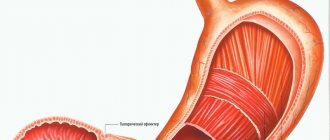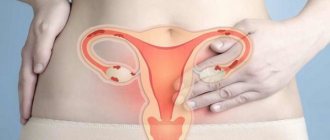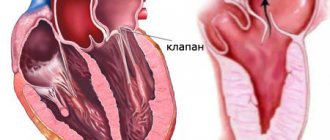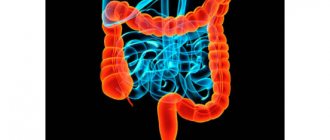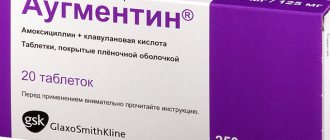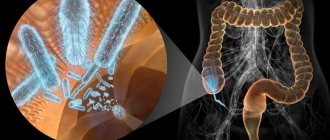But this connection is still visible. Some types of psychoneurotic disorders affect human eating behavior. These are bulimia neurotic and compulsive overeating disorder. Some people cannot swallow even a piece of food when they are stressed or depressed, while others, on the contrary, eat everything they can get their hands on. If bouts of compulsive overeating accompany a stressful life, excess weight appears, which can develop into obesity. It is in such a situation that the inexpensive, but effective and well-proven drug “Fluoxetine” will come to the rescue.
Is fluoxetine a drug?
This is a common misconception that is associated with prejudice against any drugs that affect the mental sphere. A drug is an intoxicating, toxic substance that causes mental and physical dependence. We can say with confidence that Fluoxetine is not a drug on any count.
Is it addictive?
Fluoxetine does not cause either mental or physical dependence. The myth about this is associated with the confusion in people’s minds of the concepts “antidepressant” and “tranquilizer”. Tranquilizers are anti-anxiety drugs that can actually cause addiction in some situations. However, antidepressants have a completely different mechanism of action and do not cause the need to take the drug again and again, increase its dose, or prolong the course of treatment. If well tolerated, Fluoxetine can be safely taken for several years.
Consequences of overdose
If the recommended dose of Fluoxetine is exceeded, a state resembling drug intoxication can indeed develop and is accompanied by various side effects: from overexcitation, anxiety, insomnia or drowsiness, to convulsions, dilated pupils, tremors of limbs and suicide attempts. In addition, nausea and vomiting appear as a protective reaction. In severe cases, the functioning of the respiratory and cardiovascular systems is disrupted, consciousness is depressed to the point of coma and the risk of death increases.
Such symptoms occur not only when the drug is overdosed, but also when the dose is increased too quickly. The medicine should be taken from a minimum dosage, increasing it every 5-7 days. If you immediately start taking the drug 20 mg 2-3 times a day, then it will “work in full,” as patients write on the forums.
The risk of developing adverse reactions increases when taking other psychotropic drugs simultaneously. Negative interactions of Fluoxetine with other antidepressants, tranquilizers, and anticonvulsants have been noted.
Withdrawal syndrome
The dose of the drug should also be reduced gradually. This is not explained by addiction, but by a change in the content of serotonin in the nerve endings. Sudden changes in the concentration of this substance are stress for the body. In response to immediate withdrawal of Fluoxetine, he may respond with the return of symptoms of depression, dizziness, but drug withdrawal will not occur.
The severity of withdrawal syndrome depends on the quality of the drug. Prozac, the original Swiss medicine, is considered the best option.
What will a drug test show?
In the aspect of drug addiction, patients are also interested in the question of whether a drug test will show traces of Fluoxetine in the blood or urine. You don’t have to worry about this: no one will consider a patient taking antidepressants to be a drug addict. Unlike amphetamine, cocaine, and opiates, fluoxetine is not on the list of substances whose presence is determined by drug analysis.
However, if you are being examined to obtain a driver's license or a weapons permit, keep in mind that Fluoxetine may slow down your reaction time. You should not engage in potentially hazardous activities during treatment.
Indications for use
Fluoxetine is effective for the following disorders:
- depression accompanied by fears;
- bulimia, in this case the drug is used as a component of complex psychotherapy;
- obsessive-compulsive disorder;
- premenstrual dysphoria;
- bulimic neurosis;
- prolonged alcoholism;
- bipolar disorder;
- schizophrenia and schizoaffective psychosis;
- obsessive states;
- resistant depression.
Fluoxetine for weight loss
Fluoxetine tablets are used not only to treat depression, but also for weight loss. Under the influence of the drug, appetite is reduced, as a result of which the medication began to be used for weight loss.
The maximum daily dose in this case should not exceed 80 mg.
In cases where the cause of excess weight is a depressive state (bulimia), the effect of the drug will be as natural as possible and the functioning of the internal systems of the body will not be disrupted.
Reviews from people losing weight using Fluoxetine show that this drug is really effective and helps to lose weight, but at the same time the functions of other body systems are disrupted.
Doctors do not recommend using this drug for weight loss, since loss of appetite is not a clinical effect, but a side effect. After all, the medication itself is designed to combat depression.
How does a person’s personality change after taking Fluoxetine?
Some patients and their relatives notice that after taking an antidepressant, a person’s personality seems to change. They indicate changes in behavior and communication, the appearance of irritability, and suicidal ideas. Such manifestations are typical for an overdose or the initial stage of taking Fluoxetine. As the body gets used to the drug, the state of health is restored. You need to be careful when using Fluoxetine in patients with severe depression and severe suicidal tendencies. In this case, the drug can only make you feel worse.
The opinion that the medication causes aggression and hostility has no basis in reality. It is associated with several episodes of massacres and shootings in public places by people taking similar drugs. However, you need to understand that antidepressants are prescribed to patients who already have mental disorders. Therefore, in such cases, we can only talk about the lack of effectiveness of treatment, and not about Fluoxetine as the main cause of aggression.
When used correctly, the drug changes not the personality, but the patient’s behavior and his perception of the world around him in a more positive way, and increases self-confidence.
special instructions
Fluoxetine is strictly contraindicated when drinking alcohol. If the functioning of the kidneys and liver is impaired, treatment should begin with half the recommended dose. In this case, you need to increase the interval between taking the medication.
Also, the drug is not recommended to be taken during pregnancy and lactation. Fluoxetine is not prescribed to children and young people under eighteen years of age.
Prescribing medication for patients with diabetes may cause hypoglycemia. After a course of therapy with MAO inhibitors, the drug can be used only after fourteen days. Treatment of patients with underweight may lead to an anorexic effect.
Fluoxetine and sports: application in bodybuilding
In pursuit of records, athletes often resort to a variety of medications that supposedly increase endurance and performance. In bodybuilding, they did not ignore Fluoxetine and even provided a theoretical basis for its use: fatigue develops against the background of depletion of mediators - biologically active substances, which include serotonin. And with an increase in efficiency, performance is maintained for a long time.
Such statements are inherently false. The mechanism of development of muscle fatigue is much more complex, and the use of antidepressants without serious indications is risky. These drugs help in sports only those people who really suffer from depression and obsessive fears. In such cases, Fluoxetine increases vitality, strengthens self-confidence and the will to win.
The role of the drug in weight loss
The antidepressant Fluoxetine is a selective serotonin reuptake inhibitor. The drug substance slows down and prevents the physiological inactivation of the neurotransmitter, increasing its concentration in the synaptic connections of nerve fibers. The action develops predominantly in the central nervous system, and the characteristic of a selective inhibitor is assigned to “Fluoxetine” due to its indifference to other neurotransmitters - dopamine and norepinephrine. Although they have a structure similar to serotonin, they are outside the zone of influence of the drug. This makes Fluoxetine safer and has fewer side effects than other antidepressants.
Indications for use of the drug include:
- depressive states of various origins;
- obsessive-compulsive disorders;
- premenstrual dysphoria;
- panic attacks and phobias;
- schizophrenia;
- neurosis in alcoholism;
- bulimia neurotic type.
The drug can be prescribed for prolonged depression, accompanied by regular overeating and stable weight gain. In some cases, Fluoxetine is prescribed to athletes recovering from injuries. This is due to the activation of energy release under the influence of serotonin, as well as improved mood and increased endurance of the patient.
An increase in serotonin concentration under the influence of an antidepressant helps stabilize the patient’s psycho-emotional state, improve sleep, and increase physical activity. The anorexigenic effect of the drug is concomitant. Doctors classify it as one of the side effects of the drug, which manifest themselves so clearly that in some cases, Fluoxetine is prescribed specifically to reduce appetite.
An additional advantage of the product is the activation of heat transfer under its action, which accelerates the burning of subcutaneous fat and additionally stimulates the process of losing excess weight. Also, with Fluoxetine, there is an improvement in the synthesis and discharge of bile, urine output, and increased intestinal motility.
Fluoxetine and sex
The description of the drug states that it is able to delay ejaculation (ejaculation), which is the basis for its use for the treatment of sexual dysfunction in men. However, there are also negative aspects: sometimes while taking Fluoxetine, libido (sexual desire) decreases and impotence develops. The medicine also occasionally has a negative effect on women: it changes the rhythm of menstruation and causes inflammation of the vaginal mucosa.
However, all of these failures are extremely rare and are completely reversible - after stopping the medication, the ability to fully engage in sex quickly returns.
Analogs
The following drugs can be used instead of Fluoxetine:
- Prozac is an original medication that contains fluoxetine as an active ingredient. It is produced in capsules; they cannot be used to treat children and nursing patients. They can be prescribed to pregnant women only according to strict indications.
- Profluzac is a domestic drug that is a complete analogue of Fluoxetine. The antidepressant is available in capsules. They are not suitable for persons under 18 years of age, pregnant women or breastfeeding women.
- Flunisan contains fluoxetine as an active ingredient. The medication is available in tablets that are contraindicated for children, pregnant women, and lactation.
- Apo-fluoxetine is a Canadian drug based on fluoxetine. The medicine is produced in capsules that can only be prescribed to adults. Apo-fluoxetine should not be prescribed to pregnant or lactating women.
Does the drug affect hormones: testosterone, cortisol, prolactin
Fluoxetine affects only mediators - substances that ensure impulse transmission in nervous tissue. It does not affect the endocrine glands and the hormones they produce (cortisol, prolactin, testosterone, insulin). Many attribute similar properties to Fluoxetine, confusing it with other psychotropic substances that increase prolactin, lower testosterone and thereby disrupt sexual development.
For the same reason, patients are interested in whether adolescents with unstable hormonal levels can take an antidepressant. The drug is indeed not prescribed until the age of 18, however, not because of the effect on the concentration of hormones, but due to the instability of the child’s psyche.
What's the result?
The supposed positive effects of taking Fluoxetine for weight loss are:
- weight loss due to decreased appetite;
- acquiring new eating habits;
- reducing food portions;
- stabilization of the nervous system;
- eliminating bouts of compulsive overeating;
- getting rid of various psycho-emotional disorders and phobias.
It is impossible to buy the product and select an adequate dosage without a doctor’s prescription. Remember that taking incorrect doses is associated with an increase in the number of negative effects of the drug.
Doctors say that losing weight on Fluoxetine often ends in failure due to an incorrect treatment regimen or lack of adequate indications for the use of the drug. Customer reviews of Fluoxetine tablets for weight loss are different. Some people managed to get rid of the tendency to overeat, and some did not lose weight at all, and also noticed apathy, drowsiness, and anxiety. In any case, a serious antidepressant is an effective adjunct only if its use is supervised by an experienced specialist.
What effect does the medication have on sleep?
In the vast majority of cases, Fluoxetine has a stimulating effect on the psyche and disrupts sleep. That is why it is recommended to take it in the first half of the day - otherwise the patient will have trouble sleeping.
However, you can often find the following questions on forums: “Why does Fluoxetine make me feel sleepy?”, “What causes drowsiness after Prozac?” Such reverse reactions are usually associated either with an incorrectly selected dose or with the individual characteristics of the body. If the drug is otherwise well tolerated, then in such a situation you should simply shift its intake to the evening.
Giving help
Help in such a situation should be urgent. Because the symptoms grow very dynamically. The medicine acts with increased strength due to the accumulation of the substance. The first thing you need to do is call a team of professionals. Before they appear, you should not be inactive; you need to provide first aid.
Measures at home
Accept sorbents
The algorithm of actions to eliminate the symptoms of toxemia is as follows:
- Rinse the stomach by drinking a large amount of warm boiled water (at least 1 liter). If more than an hour has passed since taking the medicine, then this procedure is not advisable.
- Take enterosorbents. In this case, filterum STI, polysorb or activated carbon will help.
- In case of unconsciousness, the victim must be placed on his side to avoid obstruction of the respiratory passages by vomit or a sunken tongue.
Medical events
Further measures to save the patient are carried out in a hospital setting. There is no specific antidote to Prozac. Treatment consists of symptomatic therapy. In this regard, procedures are carried out to relieve seizures, restore normal activity of the central nervous system, and stabilize blood pressure. Extracorporeal detoxification procedures, such as diuresis, blood transfusion, hemodialysis, plasmapheresis, etc., are inappropriate in this situation.
Is it possible to drink coffee along with an antidepressant?
There is no direct prohibition on the simultaneous use of coffee and Fluoxetine capsules; it all depends on the individual’s sensitivity to drugs and on the state of the digestive system. There are two possible directions of negative interaction between an antidepressant and caffeine.
- Firstly, they both have an stimulating effect; in high doses they can cause tachycardia and increased blood pressure.
- Secondly, they sometimes irritate the stomach in patients with gastritis and peptic ulcers.
Therefore, while taking Fluoxetine with caffeine, abdominal pain, nausea and heartburn are possible.
If both substances are well tolerated, their combined use is not contraindicated. Is it possible to take Fluoxetine capsules if you have a stomach ulcer? This is possible, but in this case, it is better to separate the intake of antidepressants and coffee by time.
Cases of overdose
An overdose of Fluoxetine is manifested by the following side effects:
- dizziness and frequent headaches;
- nausea and diarrhea;
- decreased visual acuity;
- increased sweating.
If one of the above symptoms occurs, it is necessary to perform a gastric lavage and take activated charcoal.
For convulsions, tranquilizers should be taken and symptomatic therapy should be carried out. Overdose occurs when the daily dose (80 mg) is exceeded.
Can you really lose weight with fluoxetine?
The instructions for use of the drug indicate that it reduces appetite up to anorexia (complete refusal of food), so some patients take it for the purpose of losing weight. This approach is fundamentally wrong. Fluoxetine reduces appetite only in obesity caused by the need to “eat up” stress. In case of nutritional, hormonal obesity, metabolic disorders, the drug is ineffective. You can read more about the use of Fluoxetine for weight loss in a separate article.
Consequences for the body after poisoning
In most cases, poisoning does not lead to death. However, it can have quite serious consequences.
- Serotonin syndrome. A large amount of this substance is just as dangerous as its deficiency.
- Depersonalization. In this case, a person begins to perceive himself from the outside. A person ceases to be responsible for his actions, and this is very dangerous for the people who surround him.
Pharmacokinetics
The antidepressant is perfectly absorbed into the gastrointestinal tract. Food consumed in parallel reduces the absorption of components. 6-7 hours after taking the product, the blood becomes as concentrated as possible. Fluoxetine has a bioavailability of 60% or higher.
Fluoxetine
The contents of the antidepressant accumulate in tissues and penetrate the blood-brain barrier, participating in maintaining the homeostasis of the body and individual organs. In the liver, metabolism is achieved through processes reverse to metabolization to the formation of the active metabolite, norfluoxetine.
Excretion of active substances occurs through the kidneys. Clearance is 94-704 ml/min, norfluoxetine is 60-336 ml/min. In case of renal failure, fluoxetine is eliminated with a similar movement.
About 12% of the drug is released through the gastrointestinal tract. The half-life of fluoxetine occurs in about 2-3 days, norfluoxetine leaves the body in 7-9 days. In case of liver failure, the components of the drug are excreted much longer than normal. During lactation, 25% of elements relative to blood serum enter milk.
Composition and release form
The main active ingredient of the drug is fluoxetine hydrochloride; it also contains silicon, titanium dioxide, gelatin, corn starch and other excipients. A pack of Fluoxetine contains one or more blisters of 10 capsules each. You can often find erroneous information that Fluoxetine is available in tablets. In fact, the most common form of release is capsules. But, for example, GNCLS (Ukraine, Kharkov) produces Flucosetine tablets, they are covered with a yellow film coating.
Side effects
On the part of the central nervous system, the use of Fluoxetine can cause headache, dizziness, sleep disturbances, asthenia, tremor, agitation, motor agitation, and anxiety. There is a risk of suicidal tendencies, mania or hypomania. Other possible side effects:
- Allergies: itching, skin rash, urticaria, arthralgia, myalgia, fever.
- From the gastrointestinal tract in the form of: vomiting, nausea, decreased appetite, taste disturbances, diarrhea, dry mouth, hypersalivation.
- Genitourinary system: dysmenorrhea, vaginitis, urinary incontinence or retention, decreased libido, sexual dysfunction in men (ejaculation may slow down) may occur.
- Other side effects include: impaired visual acuity, tachycardia, increased sweating, weight loss, vasculitis, the possibility of systemic disorders of the liver, kidneys or lungs.
Impact on the body
The drug "Fluoxetine" belongs to the pharmacotherapeutic category of an antidepressant; it eliminates depression, relieving the feeling of depression. How does this medicine work when it enters the human body?
- Increases the concentration of serotonin in human brain cells.
- Prolongs the stimulating effect of the hormone of joy on the nervous system.
- Suppresses brutal appetite through an active effect on the saturation center in the brain, according to reviews.
How to take Fluoxetine for weight loss and in what quantity directly depends on the severity of the problem. The weight loss effect of this drug is especially noticeable when taking a long course of five to seven weeks. Reviews of those who have lost weight using Fluoxetine for weight loss often indicate a period of one and a half months.
Fluoxetine is a drug that was originally developed and is still prescribed today as a powerful antidepressant. It promotes the production of serotonin in the body - the famous hormone of joy. As a result of treatment, mood improves, tension decreases, anxiety and fear disappear. All this is a natural and predictable effect of sedative pills. But how can they affect weight loss? The mechanism is quite simple:
- serotonin helps reduce appetite - at the next meal, a much smaller portion is eaten than before, which leads to a decrease in calories consumed;
- thirst forces you to drink a lot of water, which improves metabolic processes and accelerates lipolysis, and a weak diuretic effect will allow you to get rid of excess fluid in the body;
- the stimulating effect leads to increased efficiency and energy, and with this effect you can easily force yourself to play sports.
However, Fluoxetine does not guarantee 100% weight loss, because its pharmacological action is aimed at a completely different result. If you decide to take these capsules for weight loss, evaluate them objectively in this regard. The first thing you will achieve is a good mood and peace of mind. But a decrease in appetite as a side effect may not appear until the end of the course.
The action of this drug is aimed at restoring the normal functioning of the nervous system and removing the body from a stressful situation. This is due to the fact that the active components of the tablets activate the production of serotonin.
An additional effect of the drug is to dull the feeling of hunger, which significantly affects weight loss. And thanks to the improved mood, you can easily start playing sports and improve the effectiveness of your weight loss course.
Why are people looking for fluoxetine analogs?
Fluoxetine is a popular and well-established drug that people have been purchasing for many years. But today, more and more often, patients are looking for substitute analogues of this remedy. This is due to the following reasons.
Price issue
Fluoxetine is not the cheapest drug (its price is about 300 rubles) and in order to save money you have to look for more affordable analogues.
Among them are Framex and Flunat - these are more affordable medications that cost from 100 to 150 rubles, and their low price is due to their less famous name.
By-effect
Fluoxetine is a high-quality and proven drug, but it has certain disadvantages, or rather a number of side effects:
- bowel dysfunction;
- infrequent headaches that appear an hour after administration;
- increased heart rate, which can lead to tachycardia;
- overdrying of the mucous membrane;
- blurred vision;
- increased sweat secretions;
- general malaise;
- Women who took the drug experienced pain in the mammary glands and menstrual irregularities (up to several weeks);
- nausea and vomiting;
- noise in ears;
- constant feeling of fatigue;
- sleep disorders;
- depression;
- acne and allergic irritations;
- broken bones;
- sexual apathy (loss of interest in sex).
The list of contraindications is quite long and that is why most people are looking for more harmless analogues. For example, it could be Flunat or Deprex. The drugs have a natural composition and a less aggressive effect on the patient’s body.
Contraindications
The drug is contraindicated during pregnancy, lactation and children under 18 years of age. The antidepressant is used with caution in diabetes mellitus, epilepsy (including a history), Parkinson's disease, excessive weight loss, and suicidal tendencies. In addition, Fluoxetine is contraindicated in:
- simultaneous use of MAO inhibitors and within two weeks after their withdrawal, pimozide, thioridazine;
- atony of the bladder;
- severe renal and liver dysfunction;
- hypersensitivity to the drug.
Price
https://www.youtube.com/watch?v=ELEc-x7beEA
The drug "Fluoxetine" with its analogues can be bought at any pharmacy, but subject to a prescription from a doctor. The price of the drug is quite affordable. And it doesn’t matter what manufacturer the capsules that a person wants to purchase are from, since they have approximately the same cost with the same amount of active ingredient. This is especially true for antidepressants produced by domestic pharmaceutical companies. So, the cost of Fluoxetine is as follows:
- The price ranges from seventy rubles for thirty capsules.
- From sixty rubles for twenty capsules.
- sells medicine from fifty rubles for twenty capsules.
- from fifty rubles for twenty capsules.
In pharmacies you can also find synonyms for this drug:
- The produced version from the Austrian company called “Fluoxetine Lannacher” costs one hundred and twenty rubles.
- Canadian Apo-Fluoxetine costs one hundred and forty rubles for one standard package.
- The domestically produced drug “Fluoxetine-Canon” costs from one hundred rubles for twenty capsules.
Beneficial features
So, why is Fluoxetine used for weight loss? This drug affects the hormonal system: it stimulates the production of serotonin, the “joy” hormone. It is the deficiency of serotonin that leads to various disorders of the nervous system, ranging from bad mood, lack of normal sleep, depression and ending with bulimia. While taking Fluoxetine for weight loss, a strong feeling of hunger disappears, a person stops “eating” any troubles. A decrease in appetite leads to a decrease in the amount of food consumed, while the person losing weight does not experience any discomfort. New kilograms are not gained, but previously accumulated ones, on the contrary, smoothly go away. A person's mood improves, motor activity and endurance increase. That is why a course of Fluoxetine is an excellent time to start exercising in parallel with losing weight.
